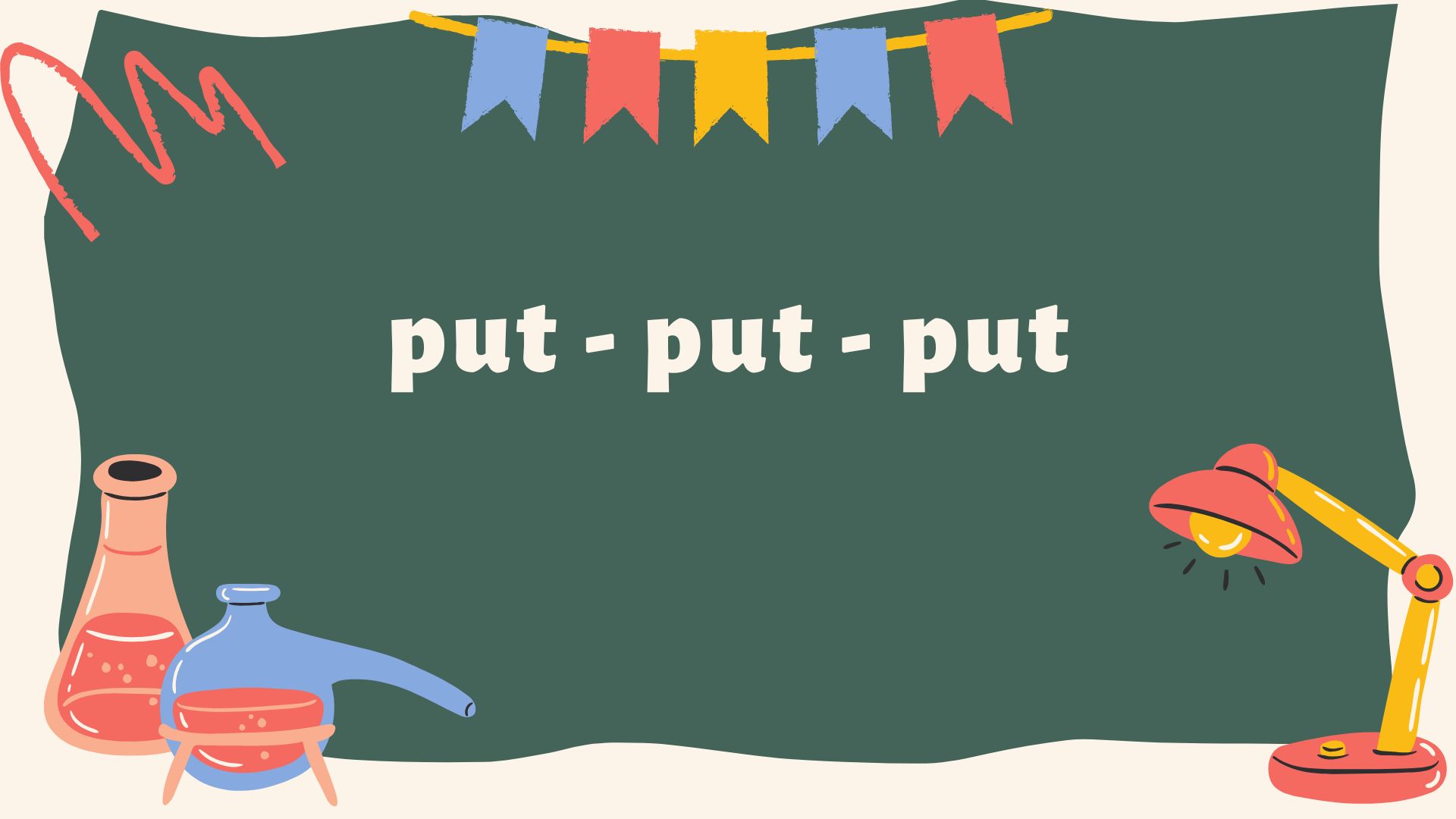What Is The Past Tense Of Put?
Could you help recall the past tense of the verb “override”? It’s “overrode”, that’s simple.
Here we go again with the theme of irregular English verbs. The past tense for put is “put” – the same as its bare infinitive form. It’s great and new for you to expand your vocabulary.
How to spell put in the past tense? It’s P-U-T or “put”. Interestingly, the past participle of put has the same look and pronunciation.
The correct put verb forms are summarized in the table below.
| Base Form/To-infinitive (V1) | put |
| Present Form (V2) | puts |
| Past Form (V3) | put |
| Past Participle Form (V4) | put |
| Present Participle/Gerund (V5) | putting |
How About The Pronunciation?
By consulting the Oxford English Dictionary, see how the put past tense is pronounced in American English and British accents. We’ve compiled the know-how into the below table:
| Form of word | Pronunciation | |
| British English | American English | |
| put | /pʊt/ | /pʊt/ |
| puts | /pʊts/ | /pʊts/ |
| put (V3) | /pʊt/ | /pʊt/ |
| put (V4) | /pʊt/ | /pʊt/ |
| putting | /ˈpʌtɪŋ/ | /ˈpʌtɪŋ/ |
Definition Of Put & Examples
Here can be the bit you’re waiting for: meanings and instances of the verb put in the past tense. Take a peek at them:
- To state or express something in a specific way.
- She put her actual feelings into words.
- The poet had put all his works into the locked room before reaching Barcelona.
- To make something/somebody be affected by or feel something.
- Anna put a halt to her childish manner and attitude.
- Jane has just put all the letters into the box, but no one knows.
- To bring something/somebody into the condition or state mentioned.
- These incidents put him out of action for several weeks.
- He had put me in such poor conditions, and I couldn’t escape it.
- To make a mark or write on something.
- My students could not read what I put in yesterday.
- He still couldn’t realize what his father had put in for quite a long time
- To fix or attach something to something else.
- Yesterday, they all put new locks on all hotel doors.
- They had put new tool sets for all rooms inside the villa.
- To cause something/somebody to reach a particular place.
- It was the year the United States put a man on the moon.
- Qatar has put the football audience in a spacious and luxurious stadium for one month.
- To move something into a specific position or place using force.
- She put her fist through a table.
- The vigorous man has just put his force to the devices.
- To move one thing into a position or place.
- My grandmother put a little coffee into my mug.
- Interestingly, the nurse had put something exciting into the box for the poor kid, making him laugh all day long.
Look at this video to learn more about using “put” in English:
PUT – Basic Verbs – Learn English Grammar – YouTube
A Couple Of Lessons With Quick Exercises
FAQs
Is This Verb Irregular Verb?
Yes. It’s an irregular verb, like the verb “cost”.
Was Putted Or Was Put?
The verb “putted” is incorrectly used in this context. Instead of ‘putted,’ use the past participle form of the verb ‘put’ (‘put’, too). These two words cannot be interchangeable.
Have Put Or Had Put?
The answer is yes if you need to employ a past perfect tense. “Put” is the past participle of “put”. Thus that’s the correct form where you use have put or had put.
- Have put: present perfect tense
- Had put: past perfect tense

His name is Benjamin Essek – The founder of Grammar Wiki. He is an English native speaker and has joined many English classes, learning communities to support other people with this common language as well.

